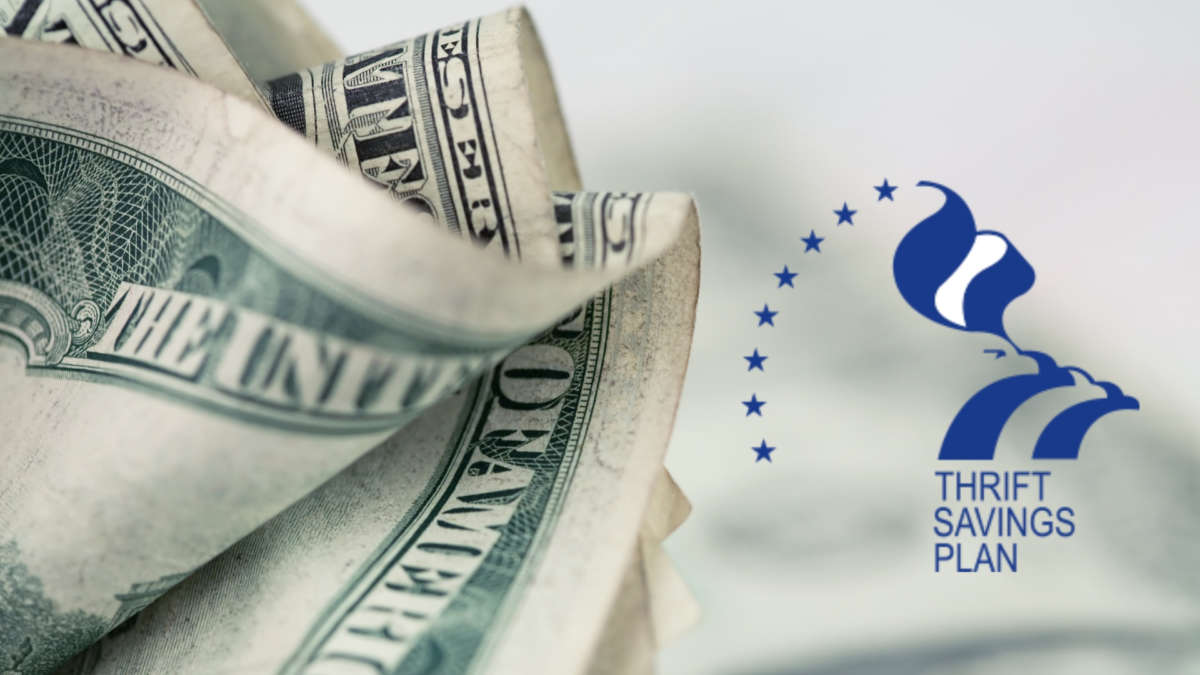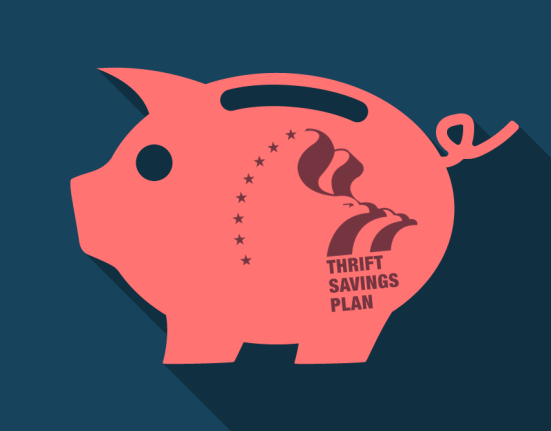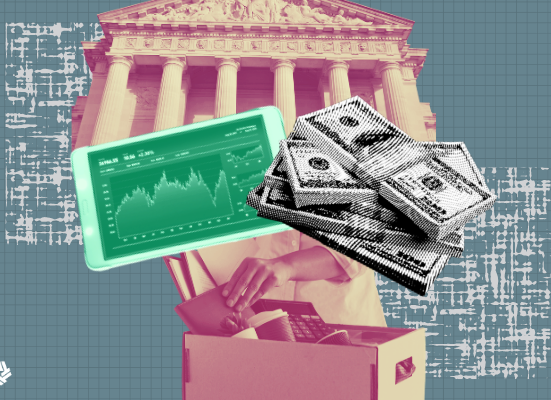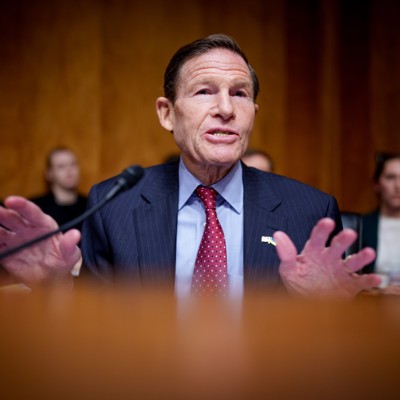Terry Gerton So Art, the stock market’s had a rough start in 2025, but it bounced back strongly. For someone who’s got money in the TSP, how should they be thinking about the ups and downs of the stock markets?
Art Stein I think it’s very important for people who are invested in the TSP to realize that the ups and downs of the stock market are guaranteed. It’s just a very up and down investment. So the G Fund is extremely popular because it never goes down, it just goes up a little bit each year. Well, when you look at the US stock funds and the international stock fund, they naturally go up and down a lot. So if we look at the C Fund, which is the most popular of the stock funds, it’s an S&P 500 index fund. And in the first three months of the year, not surprisingly, given what was going on, it was down 4% in three months, and the S Fund was down 8.9%, which was a really big decline. And as a result, people started pulling money from the C Fund and putting it in the G Fund during that quarter. And we can see the percentage invested in the C Fund go down, which was too bad because then they missed out on these great returns in the second quarter when just for that three-month period, the C Fund was up 11%, the S Fund was up 12%, extraordinarily good returns. So looking at the first six months of the year, combining those two, the C Fund’s up 6% and the S Fund’s up 2%. Another thing to point out is that the two least popular funds, which is the F Fund and the I Fund, did extremely well. The I Fund in the first six months of the year was up 18.7%, a really fabulous rate of return, and the F Fund was up 4%, almost double what you got in the G Fund. But very few TSP participants are invested in either the F or the I Fund, and so they missed out on that.
Terry Gerton Well, it’s a good reminder that the stock market is naturally volatile. I mean, in business school, we used to call it a random walk down Wall Street, right?
Art Stein That’s what we used to call it, and we still call it that. Over the short term, stock markets are considered to be, yes, as you say, Terry, quite random, the returns, the ups and downs. Sometimes it seems obvious why they’re going up or down, but many times, although you’ll see in the press reasons given, we really don’t know. People don’t invest in the stock markets because they’re worried about a market crash and they don’t like the volatility. But volatility is guaranteed. There’s always volatility every day, every hour. And market crashes, we know they’re coming. We almost had what is considered to be a bear market, which is a 20% or greater decline in a stock or bond market, we almost had one in the first quarter. C Fund was down 19%, so just short of that 20% mark, and that’s why people were pulling out. They’re reacting emotionally, they’re scared, but those kinds of declines are not unusual and a 19% decline, not even really large compared to what we’ve had in the past.
Terry Gerton I’m speaking with Art Stein. He’s a certified financial planner with Arthur Stein Financial. I want to dig back into a couple of the things you mentioned up front about some of these funds that typically have less investment than the others. The I Fund, which is the international stock fund, actually did better than the C and the S Fund. Does this mean it’s time to look outside the US for better returns, or is this just a temporary shift?
Art Stein Well, it means that last November, December was a good time to be putting money in the I Fund. Now that it’s up 18.7%, let’s call it 19%, I don’t know if it’s going to keep going up or not. You see, this is the problem. When you get those big returns, that’s when people start looking at putting money in and that might be a good idea, it might not. Nobody knows. The thing about investing in the stock and the bond markets, which is for funds in the TSP, the F, C, S and I, you need to come up with an allocation that’s appropriate for your situation and stick with it. And when the stock markets are down, that’s great for you if you’re employed and you’re buying. Of course, if you’re retired, you feel differently about things. But that’s also a good time to not be pulling money out of the stock market, be taking it from the bond markets. Now, with the TSP, you can’t specify when you’re making a withdrawal from the TSP, you can’t specify which fund you want the money to come from. It’s going to come out proportionately and that’s a disadvantage to the TSP, but for investments outside the TSP, that’s a better way to handle withdrawals.
Terry Gerton Well, you mentioned the bond fund and I want to come back to that as well, because the F Fund, which is the bond fund, did better than the G Fund and bonds are usually seen as a safer option. So what does that tell us about the risk-return ratio there and how people should be thinking about safe harbors with the bond funds?
Art Stein Okay, the F Fund is riskier than the G Fund. The G Fund is called a short-term bond fund, but really it’s constructed to just be a savings account with a high interest rate. Typically you’d be hard to get the same interest rate, but not impossible in the private sector in a savings accounts. The F Fund is a true bond fund, it invests in intermediate term bonds, which means they mature in a five to 10 year period. It’s based on the most popular bond index, the Bloomberg Aggregate Bond Index, and the price of those bonds goes up and down over time as interest rates fluctuate. Historically, the F Fund outperformed the G Fund about two thirds of the time on a calendar year basis. The last three years, 2022 through now, very unusual. In 2022, we saw historic declines in bond values because the Fed was raising interest rates. And that caused many people to just think, ‘Well, I never want to do bonds again.’ But if you have your money in the G Fund, and really the bond fund too, the F Fund, you have to assume that you’re going to lose purchasing power and that the G Fund’s gonna lose more purchasing power than the F Fund over time. Now, past performance, no guarantee of future performance, but historically, it’s pretty strong evidence that after taking into account taxes and inflation, the purchasing power of bonds and bank accounts goes down.
Terry Gerton So as you look ahead to the second half of 2025, what does your crystal ball say and what should TSP investors be thinking about?
Art Stein My crystal ball says, ‘Do not forecast. Nobody knows.’ My crystal ball says, ‘We predict that if you forecast what’s going to happen in a six-month period, you will look like an idiot most of the time.’ And my clients were long-term investors. We’re putting money in stocks and bonds, we pick an allocation, maybe 60% in stock funds and 40% in bond funds, may be higher or may be lower depending upon the client, and we stick with it. And when the stock market crashes, we end up transferring money from bond funds to stock funds to buy when prices are low. And when the stock market is doing very well compared to bonds, which is again, a more typical situation, then we’re selling stock funds to buy bond funds because we want to lock in some profits and keep the allocation to what it is. So we do not forecast, because nobody is good at forecasting. And of course, Terry, as you know, and as all federal employees and retirees know, these are just unusual times, unprecedented, really. A lot of things that we assumed about working in and for the federal government turned out not to be true. I always thought that federal employees had great job security. Nobody thinks that anymore. And there is a chance that benefits may be adjusted. Although in the Big, Beautiful Bill that passed, they pulled out the adjustments to federal benefits, which was great, I was so happy to see that. And that did to me seem typical because pretty much every Congress has a group of people who are trying to reduce federal benefits. People get worried, I don’t blame them for being worried, but it’s never worked out. And even now, when the people who want to do that the most had the best opportunity to do it, they couldn’t get it through, which is great. But on the other hand, so many people have been fired, let go, have quit in disgust. So it’s very uncertain times. But that doesn’t mean that stocks are not going to do well in the future. The economy can do well. The stock market can do well even if the federal government’s being gutted.
Copyright
© 2025 Federal News Network. All rights reserved. This website is not intended for users located within the European Economic Area.







